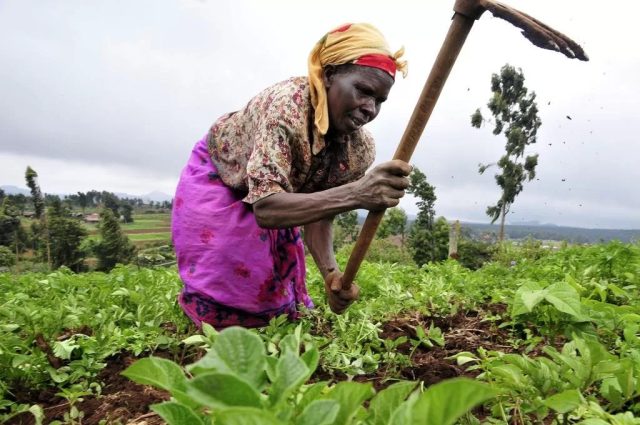News Commentary recognizes the critical role and contribution of rural women to development.
Internationally, October 15 every year has been set aside to celebrate and appreciate the crucial roles Women and Girls in communities play in society. In Ghana, most rural areas are dominated by agricultural activities, and no wonder the country’s economy is 20 percent driven by the agricultural sector. Growing up in farming communities, such as Adeiso in the Eastern region and the like, many people will attest to the hard work that young and old women invested in their farms and the farming activities they engaged in daily to feed their families.
One may ask, Where are their husbands, brothers, or fathers to assist in those jobs? Inasmuch as some of these women genuinely do it to feed their homes, others also accept the challenge as a form of support for their husbands, brothers, or fathers in order for them to be able to cultivate a larger piece of land for plenty of yields. According to the United Nations, women make up more than 40 percent of the agricultural labour force in developing countries, ranging from 20 percent in Latin America to 50 percent or more in parts of Africa, which includes Ghana and Asia.
Women play significant roles in the agricultural labour force, encompassing informal work, and are primarily responsible for the majority of unpaid care and domestic duties in rural households. They make substantial contributions to various aspects of their countries growth and development, such as agricultural production, food security, nutrition, land and natural resource management, and the enhancement of climate resilience. Despite their essential contributions, women and girls in rural areas bear a disproportionate burden of multi-dimensional poverty.
While they increase productivity and are entrepreneurs on par with their male counterparts, they face obstacles in accessing land, credit, agricultural resources, markets, and high-value agricultural chains and often receive lower prices for their produce. Structural barriers and discriminatory societal norms, cultures, traditions, and practices limit the decision-making power and political involvement of women in rural households and communities. In some rural communities here in Ghana, women have no right to own land, and they work on lands owned by men. These women and girls lack equal access to productive resources and assets, as well as essential public services like education and healthcare, along with necessary resources and infrastructure like water and sanitation, schools, health facilities, and other food items.
Additionally, a significant portion of their work goes unnoticed and unpaid, leading to heavier workloads, particularly due to the migration of men out of rural areas. In fact, some indulge in all sorts of menial jobs to make ends meet or fend for themselves and other relatives. Globally, with only a few exceptions, available data on various gender and development indicators consistently reveals that rural women face worse conditions compared to rural men and urban women. They disproportionately experience poverty, exclusion, and the adverse impacts of climate change. The significance of these roles informed the United Nations to set aside October 15 to celebrate these women and girls for their roles in ensuring the sustainability of rural households and communities and improving rural livelihoods and overall wellbeing.
The Holy Book encourages women to be submissive to their husbands, but this submission should not take away the recognition they deserve and the award for their sweat. Therefore, we entreat officialdom to have a special award for rural women in the agricultural sector because feeding the country is not and has not been happening only through the efforts of other farmers. These women are not obliged to carry this cross and to engage in these horrendous tasks, but they are moved by compassion, pushed by circumstances, and also lack other opportunities to make a living and provide for their families.
On this International Day to celebrate women and girls in rural communities, let us acknowledge the invaluable contributions of these heroines within the world’s food systems and chains and strive to create rural areas where equal opportunities are available to all. Let us also brainstorm on how best we can provide the necessary equipment, tools, or machinery for them to lessen the burden on those who wish to continue living and working in rural areas in order to reduce the impact their workplaces on them. Women and girls in rural communities, we salute you.
Go out with your shoulders high, for Ghana and the world are proud of your significant roles in rural areas. Ayekoo. Be motivated and strengthened to strive for more.
BY MICHEAL OKULEY, A JOURNALIST










![Mr Logic signs two dancehall artistes unto his Red Panther record label [Video]](https://ghananewss.com/storage/2023/05/Mr-Logic-signs--100x75.jpeg)







